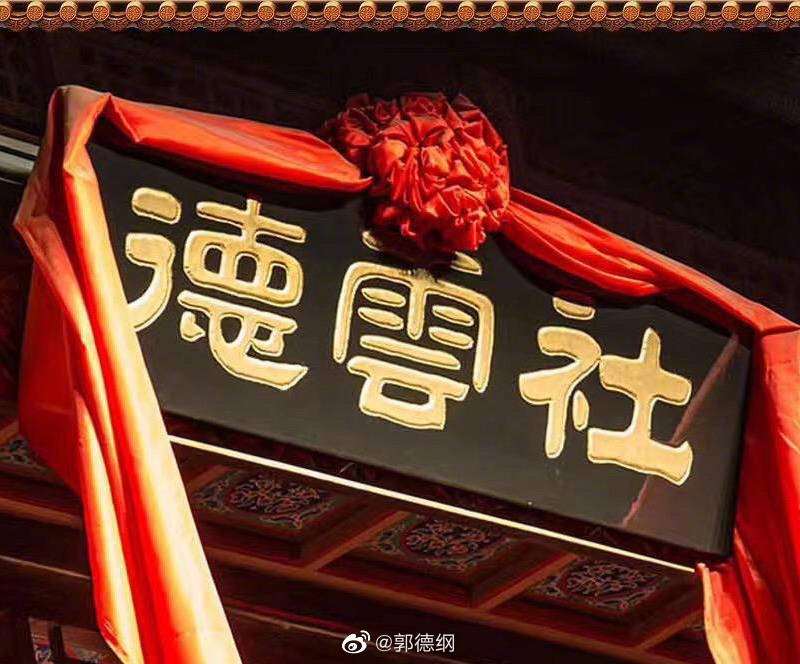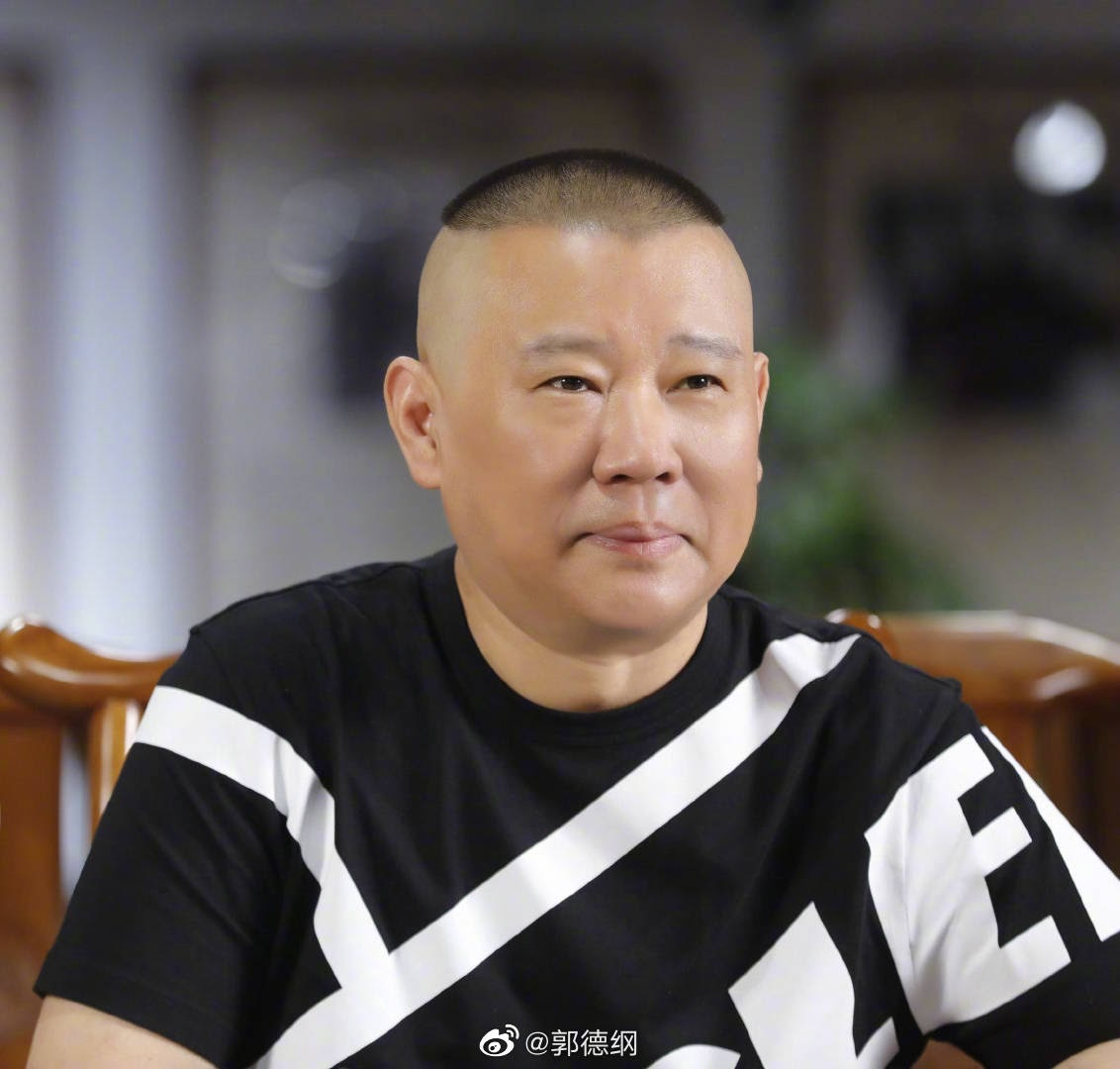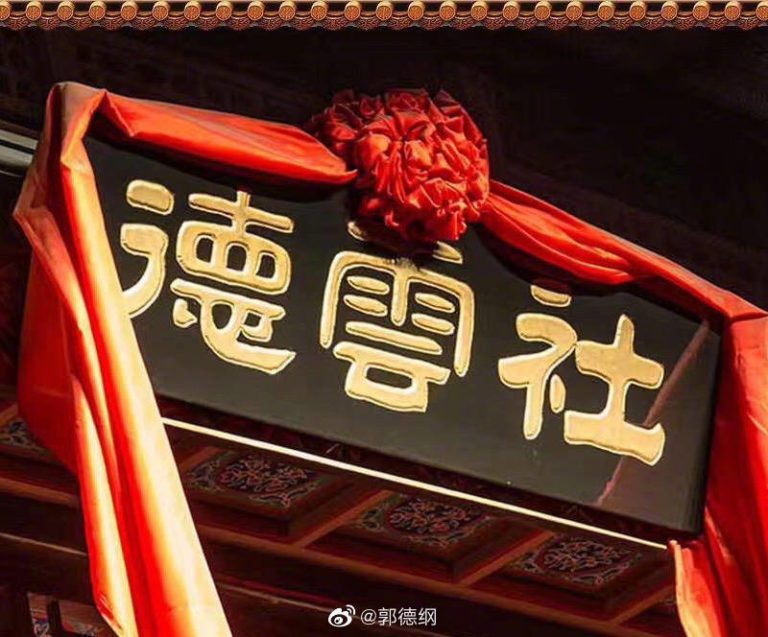 Deyunshe 德云社
Deyunshe 德云社
(Source: Weibo @ Guodegang)
In mid-December, the most famous Chinese Xiangsheng (“相声,” aka crosstalk) society Deyunshe (德云社 Dé yún shè) began to recruit new disciples.
In a promotion for the recruitment event, the founder and master comedian Guo Degang 郭德纲 explicitly said that Deyunshe will not take in female disciples: “[Girls] can do whatever they like, just don’t waste their time with us. We are not discriminating against them.”
This is not the first time Deyunshe got attention for turning down female disciples.
In the past, Guo explained, “Xiangsheng is not suitable for women. We don’t usually talk about it as people blame us for gender discrimination. But it’s actually out of respect for women. If [she] is extremely talented, we may take a look.”
 Guo Degang
Guo Degang
(Source: Weibo @Guodegang)
Guo’s statement aroused a heated discussion on the internet. Audiences now see more and more excellent female stand-up comedians via TV shows like “Rock & Roast.” So why can’t women be good at crosstalk?
Stand-up Comedian Li Xueqin 李雪琴
(Source: Rock & Roast)
[zombify_post]


0 Comments